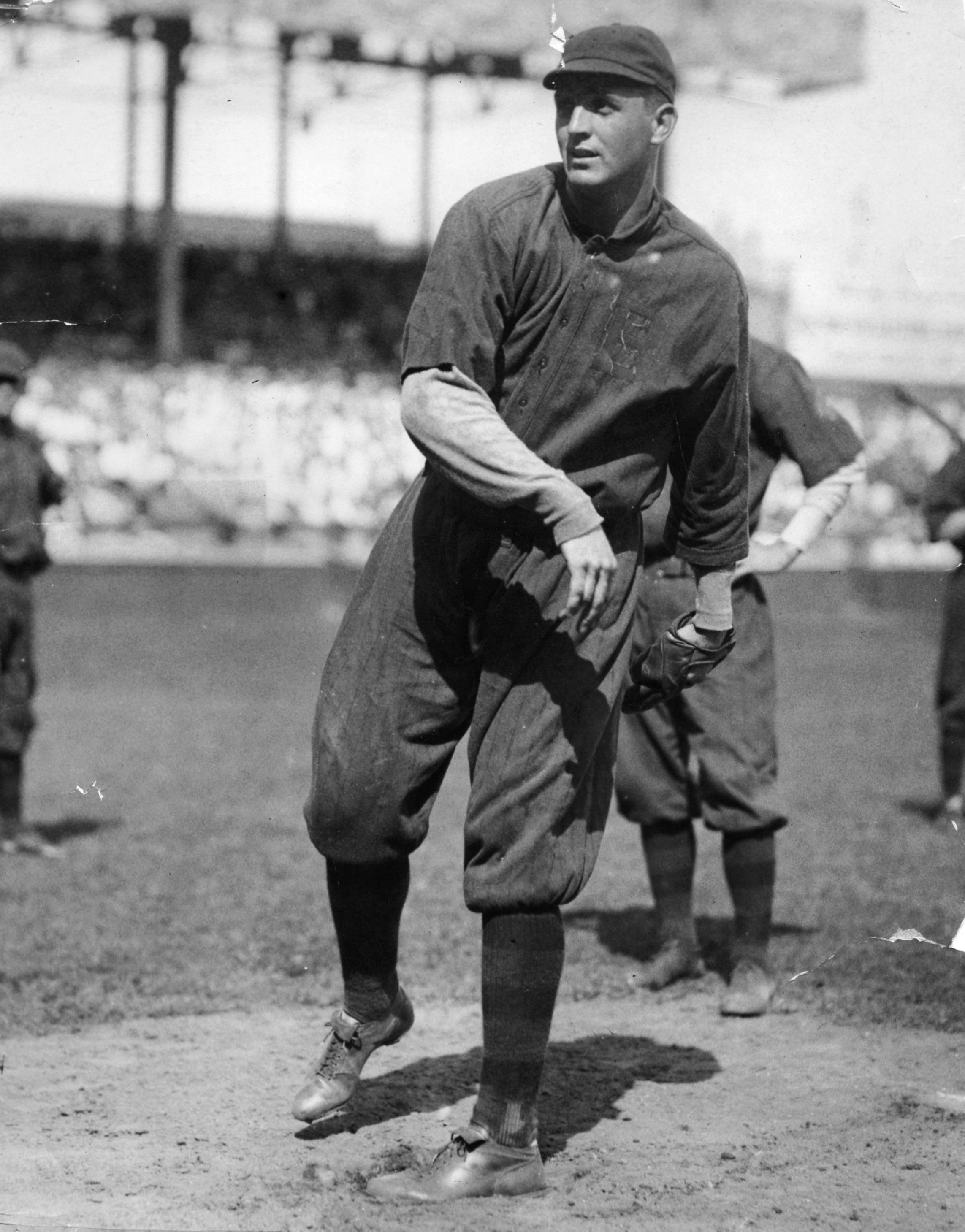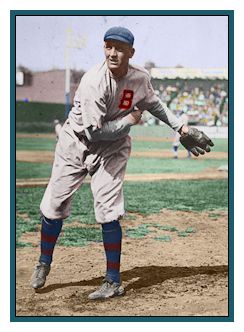 |
BOSTON BRAVES
1913-1915
at Fenway Park
1914-1915 |
At the end of the 1914 season, 22-year-old Bill James stood on the cusp of baseball stardom. He had just pitched his Boston Braves to the most improbable pennant in baseball history, and followed up on that performance by beating the mighty Philadelphia Athletics twice in three days
during that year's World's Series. He was such a uniquely gifted pitcher that John J. Ward of Baseball Magazine predicted, "The further acquisition of experience should make him one of the greatest all-round pitchers in history." When he wrote those words, Ward probably never
could have imagined that this talented pitcher, who already had 32 major league wins behind him, had but five more in front of him.
The Braves' stunning reversal of fortune in 1914 has long since entered baseball annals as the most unlikely championship run in history, but the critical role James played in the Boston uprising has undeservedly faded into obscurity. From July 9 until the end of the season, he went
19-1 with a 1.51 ERA. His only loss came on August 22 in Pittsburgh, when he was beaten 3-2 in 12 innings. Without that setback, James would have ended his season with a record-breaking 20-game winning streak. With it, he still assembled the best season of any pitcher in the National
League. James led the NL in winning percentage (.788), and he finished in the top five in wins (26), ERA (1.90), innings pitched (332.1), and strikeouts (156).
In game two of that year's World's Series, James matched up against Philadelphia's Eddie Plank in a classic pitchers' duel at Shibe Park. Plank pitched brilliantly that afternoon, surrendering seven hits and holding the Braves scoreless until Boston pushed one run across in the ninth
inning. But James was better, allowing just two hits, fanning eight, and coaxing a game-ending double play with the tying and winning runs on base to preserve the 1-0 victory. Two days later, James was called into action again when game three stretched into extra frames. Pitching on
one day's rest, James held the Athletics hitless in the 11th and 12th innings before Boston scored the winning run in the bottom of the 12th on a Joe Bush throwing error. In a span of three days, James had won two games, pitched 11 innings, and allowed just two hits. The Braves
completed their sweep of the Athletics the following afternoon.
Despite his success and status as a World's Series hero, James expressed ambivalence about life in the major leagues. James reported late to camp the following spring after a brief holdout induced the Braves to double his salary, but it soon became apparent that he was a mere shadow of
the pitcher who had dominated the league the previous year. From the start of the season James complained of chronic arm fatigue. Initially the press took a dim view of the injury, dismissing his protests as the petulant whining of an overpaid athlete. But by June, reduced velocity and
flagging endurance forced James out of the starting rotation. After a poor relief appearance on July 30, he was shelved for the rest of the season.
The Braves hoped that a long winter's rest would restore strength to James' right arm, but it was not to be. In late March 1916, teammate Johnny Evers signaled the end was near when he admitted to reporters: "His arm is gone. Bill knows it and we know it." Shortly thereafter, the
24-year-old pitcher was placed on the voluntary retired list. The press described the injury as a "dead arm," but in all likelihood James suffered from a torn rotator cuff, a condition the medicine of the day was powerless to correct. After undergoing numerous shoulder operations, James tried to return to the Braves in 1918 but the comeback was aborted before the start of the regular season. After serving in the 63rd Infantry during
World War I, James pitched one game in relief for the Braves in 1919. He spent the next several years bouncing around the Pacific Coast League as a player and coach before concluding his career with Sacramento in 1925.

|


